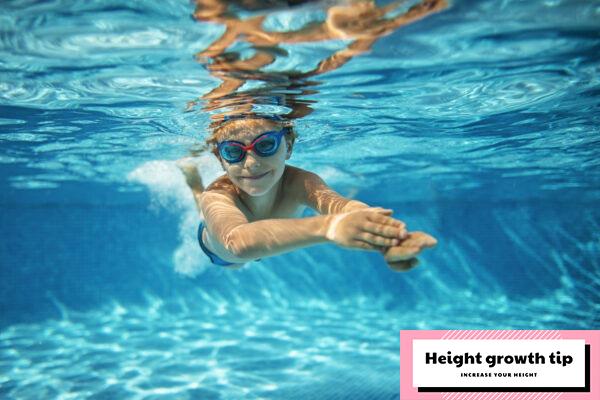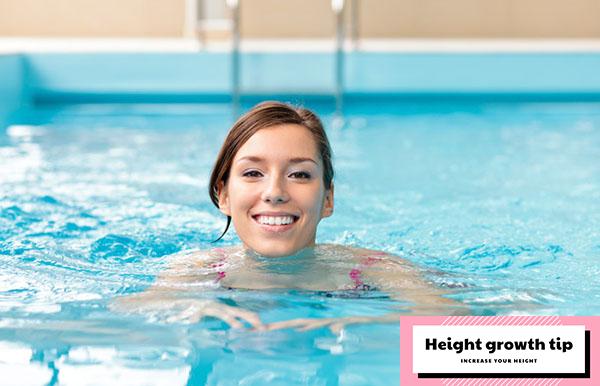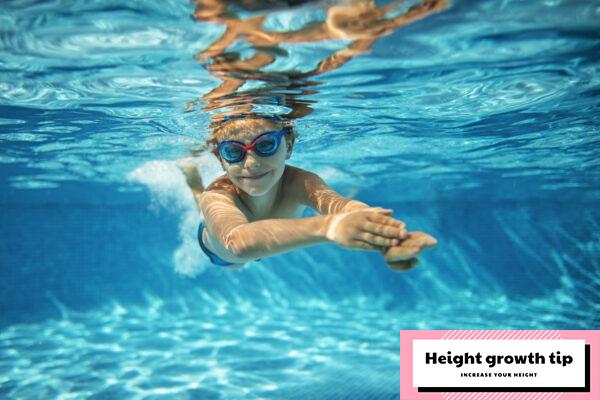Contrary to popular belief, the idea that squats can shrink one’s stature lacks substantial evidence. While it’s true that squats may momentarily compress the spine, causing a temporary reduction in height by a mere few millimeters, this effect is short-lived. The body’s resilience ensures that the intervertebral discs swiftly return to their original state after the exercise, with no lasting impact on height.
Instead of being deterred by unfounded fears, individuals of all ages should recognize the myriad benefits that squats offer. From building strength and muscle mass to improving balance and flexibility, squats are a versatile exercise suitable for everyone—from teenagers to seniors.
However, it’s essential to approach squats with mindfulness and proper technique to reap their full rewards while minimizing any potential risks. Seeking guidance from a qualified healthcare professional or fitness expert is highly advisable, especially for beginners or those with underlying health concerns. These experts can provide personalized advice and ensure that squats are performed safely and effectively, promoting overall health and well-being.
So, rather than letting misconceptions dictate your fitness journey, embrace squats as a valuable tool for achieving your health and fitness goals, knowing that when done correctly, they pose no threat to your height but offer a multitude of benefits for your body and mind.
Can swimming contribute to an increase in height?
The common belief that swimming can enhance one’s height is a misconception that requires clarification. While it may give the impression of increased height, it’s essential to understand that any apparent elongation experienced during swimming is temporary and unlikely to result in a significant, lasting impact on one’s stature.
Swimming is a low-impact sport that engages the entire body simultaneously. As your muscles stretch while propelling you through the water, they may create the illusion of “growth” or “elongation.” Additionally, swimming reduces the gravitational pressure on your spine, allowing it to decompress, which can lead to the perception of heightened stature.
However, it is crucial to emphasize that engaging in these activities may provide a fleeting sensation of a longer body, but there is no conclusive evidence to suggest that regular participation in them will lead to actual height gain. It’s important to recognize that an individual’s height is not determined by the type of physical activity they engage in.

What is the ideal age to start swimming for height growth?
The potential impact of swimming on an individual’s height is closely tied to their stage of physical development. If you have already reached your full adult height, it is improbable that swimming will lead to any significant increase in your stature. However, for those who are still in their formative years and undergoing growth, there is a theory suggesting that consistent swimming may contribute to gradual body elongation, potentially resulting in height gain over time.
Nevertheless, it is crucial to manage expectations and acknowledge that pursuing swimming solely for the purpose of increasing one’s height may yield limited results. Height is predominantly determined by genetic factors, gender, and hormonal influences, all of which are beyond our control.
The theory proposes that continuous swimming could impact height when an individual’s growth plates have not yet fused together. These growth plates play a pivotal role in bone development and lengthening. However, it’s worth noting that further research is required to substantiate this hypothesis.
Regarding the optimal age for learning how to swim, it is commonly recommended to commence swim instruction between the ages of 1 and 4. Some educational institutions even offer swimming lessons for infants as young as six months, with a primary focus on water acclimation and fostering a strong bond between parent and child.
How can swimming contribute to height enhancement?
Swimming, while not a miraculous solution for height increase in isolation, can unquestionably play a pivotal role in your endeavor to unlock your maximum height potential when integrated into a comprehensive and health-conscious lifestyle.
Ideal Duration for Swimming
To harness the height-amplifying advantages of swimming, it is imperative to adhere to a consistent regimen. Strive to engage in a minimum of 30 minutes of daily swimming over a span of 3 to 4 months to optimize your chances of witnessing height enhancements.
Effective Swimming Techniques
Among the myriad of swimming techniques, the breaststroke emerges as particularly efficacious for height augmentation. This stroke engages your entire body, facilitating muscular movement and extension. Furthermore, both the butterfly stroke and backstroke can also prove advantageous. The butterfly stroke offers an intensive workout that bolsters flexibility and elongation, while the backstroke helps maintain an optimal bodily position conducive to growth.
Choosing Appropriate Attire
There’s no need to break the bank on extravagant swimwear. Instead, opt for a comfortable swimsuit crafted from elastic materials that retain their form even when soaked. It is also advisable to invest in goggles and a swimming cap to enhance your overall swimming experience.
The Role of Nutrition
Your dietary choices before and after swimming can significantly influence your height-enhancing endeavors. Steer clear of heavy meals prior to swimming; instead, opt for a light snack approximately 2 hours before your swim, or have a glass of water, milk, or juice 30 minutes before taking to the pool. After your swim, focus on balanced meals, with an emphasis on protein-rich foods and low-fat cheese to replenish the energy expended during your aquatic workout.
Incorporating Supplementary Exercises
To further optimize your potential for height growth, contemplate integrating activities like cycling and yoga into your regimen. These exercises promote both muscle and bone elongation, complementing the benefits of swimming in your quest to maximize your height.

Exploring the Multifaceted Benefits of Swimming
Swimming, the art of gliding through the water with graceful strokes, offers a rich tapestry of advantages that extend far beyond just the physical realm. It is a holistic activity that engages the entire body, enriching our lives in myriad ways.
-
Cardiovascular Health Revitalized:
At the forefront of swimming’s impressive benefits lies its remarkable ability to fortify the heart and lungs. Numerous studies have unveiled the profound impact of regular swimming on cardiovascular health, even bestowing its blessings upon asthmatic children. The statistics are clear – swimmers boast a reduced risk of mortality when compared to their sedentary counterparts.
-
The Mastery of Breath:
Swimming is a masterclass in breath control. The art of exhaling gracefully through the nose underwater and inhaling purposefully through the mouth above water is a skill that transcends the pool’s edge. It not only enhances athletic performance across various sports but also fosters emotional equilibrium, a valuable asset in the realm of mental health.
-
Embracing the Gentle Embrace of Water:
In a world of high-impact sports fraught with the risk of injuries, swimming emerges as a serene oasis of safety. Its low-impact nature offers a soothing, almost therapeutic embrace, rendering injury a rarity. The water’s buoyancy indulges the body in a gentle massage, nurturing relaxation, coordination, and balance.
-
Calorie Burn Redefined:
For those on a mission to torch calories, swimming emerges as an undisputed champion. However, it’s essential to consider one’s weight, as it exerts a significant influence on calorie expenditure [3]. For instance:
- A swimmer weighing 160 pounds can incinerate approximately 432 calories per hour at a moderate or leisurely pace, and this number escalates to around 715 calories per hour when the tempo intensifies.
- A swimmer weighing 200 pounds might experience calorie consumption ranging from 528 to 892 calories per hour.
- Individuals tipping the scales at 240 pounds can expect to burn between 632 and 1,068 calories per hour.
-
Stress Dissolved in Aquatic Serenity:
The watery haven of swimming acts as a natural stress-buster. It gently subdues stress hormones like cortisol and adrenaline while coaxing the release of euphoria-inducing endorphins. In the midst of a taxing work or academic environment, a dip in the pool can prove to be an invaluable escape from the rigors of daily life.
-
The Intellectual Depths of Swimming:
Beyond its physical demands, swimming is a symphony of coordination and complexity, a dance between body and water that requires orchestration by the mind. This cerebral engagement may contribute to the development of the cerebral cortex, fostering enhanced sensory integration skills in children and quickening cognitive reflexes. The ripple effect is a potential boost to one’s intelligence and cognitive abilities.

